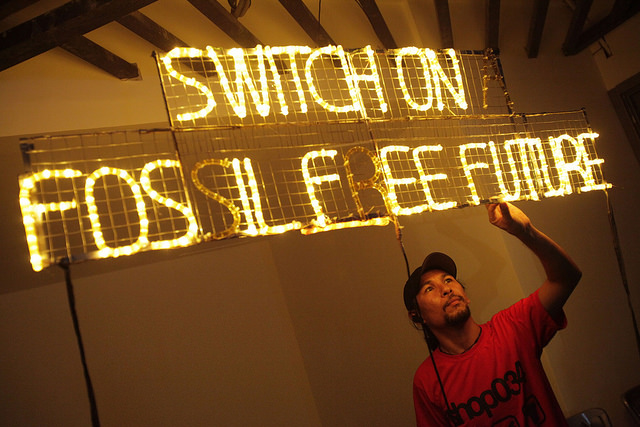
Climate as a term describes the weather conditions prevailing in each area of the earth.
Climate is the set of meteorological phenomena that prevail over a long period, and the natural greenhouse effect, is the reason why life as we know it has evolved on our planet. The natural greenhouse effect is beneficial for the maintenance of life as it keeps the average soil temperature at about 15 ° C.
In fact, any major change in climate affects life. This, for instance, has happened in the past due to factors like volcanic eruption, unpredictable natural phenomena, or external factors (change in solar activity, change in the Earth's orbit, meteorites). In the recent decades, especially ever since the Industrial Revolution, a new source of causes for climate change has been added: man.
The extensive energy use in our lives and, in fact, the predominant source of fossil fuels has led to a gradual accumulation of greenhouse gases in the atmosphere.
The over-concentration of greenhouse gases (carbon dioxide, methane etc.) is human induced. This has led to the rise in average global temperatures, whichin turn has led to heatwaves, melting ice, continuous droughts with parallel flooding.
The obvious and one-dimensional solution: changing energy sources by turning to renewable energy sources.
Let's see five simple truths.
1) The planet is warming up
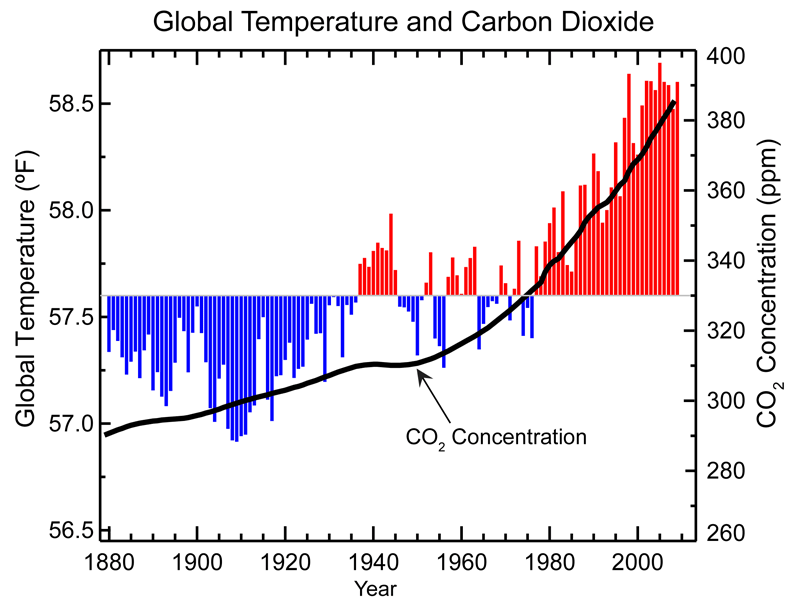
At present, the average global temperature is 1C higher than the preindustrial levels, and we are heading towards a further 0.5C rise. One degree of Celsius may not sound a great rise in temperature but it is the limit between life and death for thousands of people. Our planet has always had natural cycles of overheating and cold, but this is not it.
The five most warm years historically recorded were in 2016, 2015, 2014, 2013 and 2010. Also, the rise in temperature does not only mean that the planet becomes warmer.
The Earth's climate is complicated and even a slight increase in temperature entails enormous changes, with many collateral losses.
more:
- How Much More Will Earth Warm?
- Climate change: How do we know?
- What Is Global Warming?
- The World Is Heating Up Fast, The Question Is How Hot Will It Get?
2) We are responsible
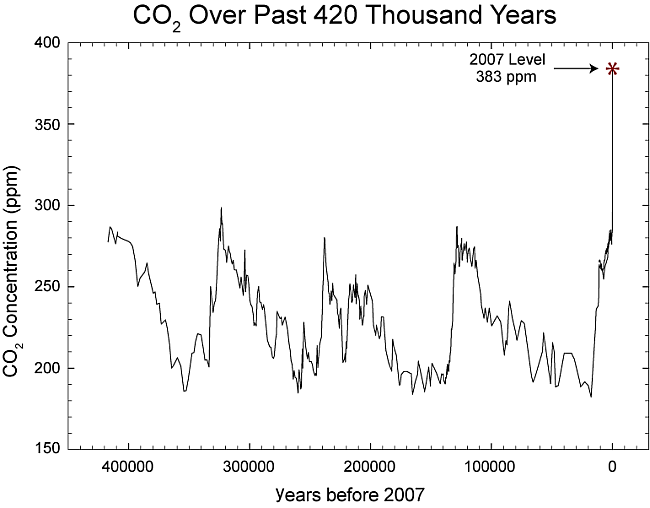
Humans are responsible for climate change, by burning large amounts of fossil fuels. The rise in temperature is almost entirely related to the release of anthropogenic greenhouse gas emissions. Before the 18th century, when people in the industrial West started burning coal, oil and gas, our atmosphere typically contained about 280 parts per million (ppm) of carbon dioxide. These are the conditions "in which culture developed and man's living on the earth adapted."
Now, as the use of fossil fuels is spreading around the world, the amount of carbon in the atmosphere has skyrocketed - measuring more than 400 parts per million of carbon dioxide in the atmosphere.
At the same time, the rapid growth of livestock farming in the richest countries has caused rapid increases in greenhouse gas emissions such as methane and nitrogen. The contribution of agriculture is responsible for 15% of global emissions. Fossil fuel burning has so far contributed most to the problem , accounting for about 57% of total emissions. The problem is compounded by the fact that carbon dioxide remains active in the atmosphere much more than methane and other greenhouse gases.
Fossil fuels companies with mining and pumping-ups recover millions of years of carbon stored on the earth's surface, thus releasing it into the atmosphere. In 2014, carbon dioxide concentrations reached 400 ppm in the atmosphere for the first time after at least 2.5 million years.
Maintaining fossil fuels in the subsoil is the most important step we can take to further prevent climate change.
more:
- 2016 hottest year ever recorded – and scientists say human activity to blame
- It’s certain: The Earth is getting warmer, and human activity is largely to blame
- BLOOMBERG: WHAT IS REALLY WARMING THE WORLD
- Major Report: Some Extreme Weather Can Only Be Blamed on Humans
.
3) We are confident about the science of climate change.
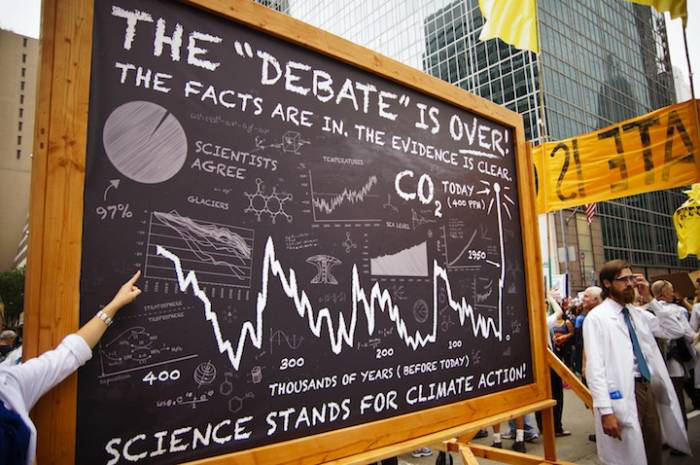
An overwhelming 97% of scientists agree that the cause of climate change are the greenhouse gas emissions produced by human activities.
There is no room for a meaningful debate on the basic science of climate change.
The conclusion that an increase in carbon dioxide (CO2) in the atmosphere causes overheating dates back to 1890. Attacks to the credibility of climate science are timeless and stem from groups of specific interests, including the fossil fuel industry, which has invested millions of dollars for creating uncertainty about our understanding of climate change and blocking action for decades.
People are driving climate change, with results visible around the world. The best way to stop it is to keep fossil fuels in the ground.
more:
- Scientific consensus: Earth's climate is warming
- Global Warming Science
- Certainty vs. Uncertainty: Understanding Scientific Terms About Climate Change
- Climate Science
4) It's bad
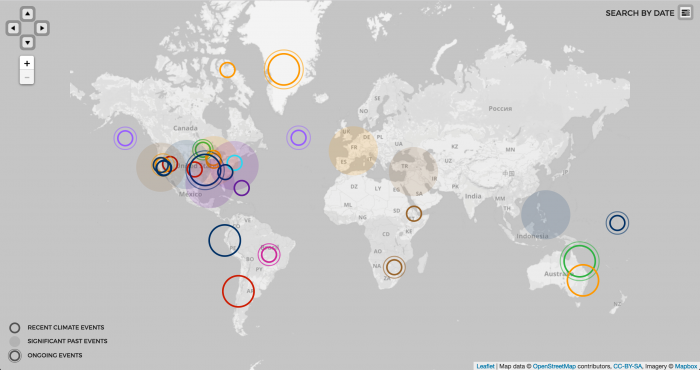
One degree of overheating that has occurred so far has already led to devastating effects on the entire planet.
Global grain yields have reduced by 10% from heatwaves and floods linked to climate change, increasing populations suffering from starvation.
This has led to local border clashes, civil conflicts and migrations.
Climate migrantion is a global phenomenon of our time, that is going to be accentuated in the future.
More than 1 million people living near the coast have been forced to leave their homes due to rising sea levels and the strongest storms that are typically occurring, and millions more are expected to leave in the years to come. Small islands in the Pacific, the atolls, will soon not exist.
The science of climate change has evolved rapidly in recent years and now scientists are clearly identifying the contribution of climate change to many extreme weather phenomena and other aspects of life.
more:
- Earth could hit 1.5 degrees of global warming in just nine years, scientists say
- This graphic explains why 2 degrees of global warming will be way worse than 1.5
- What Would a Global Warming Increase of 1.5 Degrees Be Like?
- Why is climate change’s 2 degrees Celsius of warming limit so important?
5) We can fix things
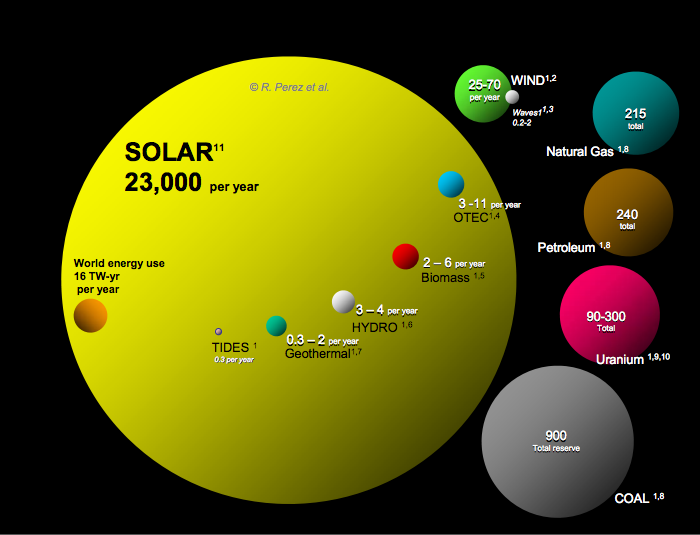
The key elements of climate change are bad and will get worse.
There is a simple math: in order to keep the average global soil temperature rise below 2 ° C, the 80% of the fossil fuel reserves must remain in the ground.
Obviously this is a difficult task since, in principle, fossil fuel companies and governments of countries that have a wealth of fossil fuels will not readily accept this.
But there are good news too:
We know exactly what we need to do - to keep fossil fuels in the subsoil and to move quickly to 100% renewable energy.
Renewable energy becomes cheaper and more popular everyday. In fact, global carbon dioxide emissions have already begun to slow down due to the rapid growth of clean energy.
And we are not alone - the global movement to stop climate change and resist the fossil fuel industry is growing every day.
However, even if we manage to keep 80% of our fossil fuels underground, a world that is 2 ° C warmer will be a very different world, and certainly more terrifying. We are only at + 1 ° C now, and we are already seeing more storms, floods, heatwaves, droughts and island nations threatening to become submarines.
Imagine what will happen at + 2 ° C
more:
- Global Warming Solutions
- The Clean Power Plan: a climate game changer
- Renewable Energy Is Critical To Stopping Global Warming
- Leonardo DiCaprio Foundation Keeping the world below 1.5C with 100% renewable energy
6) Consequences
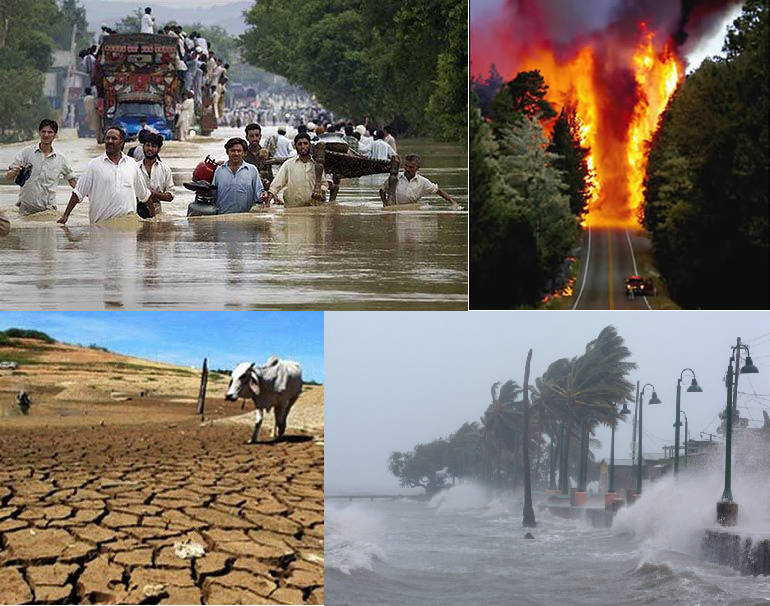
Επιπτώσεις της κλιματικής αλλαγής
Climate change affects all parts of the world. The ice in the polar regions is melting and the sea level rises. Some areas are more often affected by extreme weather and rainfall, while others are experiencing extreme heat and droughts.
These impacts are expected to intensify in the coming decades.
Melting Ice and rising sea levels
When the water is heated, it expands. At the same time, global warming causes collapses of ice to both poles and melting glaciers.
Because of these changes, the sea levels are rising, causing flooding and erosion in coastal and lowland coastal areas.
Extreme weather phenomena, displacement of rainfall
Strong rainfall and other extreme weather events occur more and more frequently, causing flooding and degradation of water quality, as well as the reduction of water resources in certain areas.
Consequences of Europe
- The southern and central European countries are increasingly affected by heat waves, forest fires and droughts.
- Water scarcity in the Mediterranean is steadily rising, resulting in increased drought and uncontrolled fires.
- Northern Europe receives more rainfall and floods will become commonplace in the winter.
- Urban areas, where 4 out of 5 Europeans currently live, are exposed to heatwaves, floods or rising sea levels, but are often not properly prepared to adapt to climate change.
Consequences for developing countries
Many poor developing countries are among the countries most affected. People living there often rely heavily on their natural environment and have fewer resources to tackle climate change.
Dangers to human health
Climate change has already created health effects:
- There has been an increase in the number of heat-related deaths in certain areas and a reduction in the deaths associated with cold in other Member States.
- We are already seeing changes in the distribution of some waterborne diseases as well as disease carriers.
Costs for society and the economy
Material damage and damage to infrastructure, as well as to human health, entail high costs for society and the economy.
Between 1980 and 2011, floods hit more than 5.5 million people and caused direct economic losses of over € 90 billion.
Areas that are highly dependent on temperature and rainfall, such as agriculture, forestry, energy and tourism, are heavily affected.
Risks to wildlife and flora
Climate change is happening extremely fast and many species of plants and animals struggle to cope with the situation.
Many species living on land or in fresh and seawater have already moved to new areas. Some plant and animal species will face a high risk of extinction if the average land temperature continues to grow unchecked.
Related Links:
- Εθνική Στρατηγική για την Προσαρμογή στην Κλιματική Αλλαγή (ΕΣΠΚΑ)
- Οδικός χάρτης για την προσαρμογή της Ελλάδας στην κλιματική αλλαγή
- Ενέργεια, κλιματική αλλαγή, περιβάλλον
- Κλίμα και ενέργεια χωρίς ορυκτά καύσιμα
- Σύσταση Εθνικής Επιτροπής για την Ενέργεια και το Κλίμα
- more
FOR THE END, A SIGNIFICANT NOTE ON POLAR VORTEX PHENOMENONS
The occurrence of polar cold or intense snowfall often causes dazzling comments from climate deniers that climate change is not happening.
But this, unfortunately, is untrue:
Though it seems intuitively contradictory, a warmer atmosphere causes heavier snowstorms. This is because the warmer air keeps more moisture, which is then released in the form of more intense phenomena either rains or snow. As a result, most of the phenomena in an area are likely to occur in the form of intense storms, not gentle storms.
The rapid melting of the Arctic causes a slowdown and weakening of the Gulf Stream, which results in the transfer of extreme cold phenomena further south. This will increasingly affect northern hemisphere countries as Gulf Stream slows down, bringing more intense cold weather and snowstorms. Meanwhile, the Arctic region continues to melt and warm up at an unprecedented rate.
Climate change is changing already in the seasons, affecting habitats and changing climatic zones, leading species to extinction and farmers in despair.
Maintaining fossil fuels in the subsoil is the best way to protect ecosystems and survival of all kinds.

